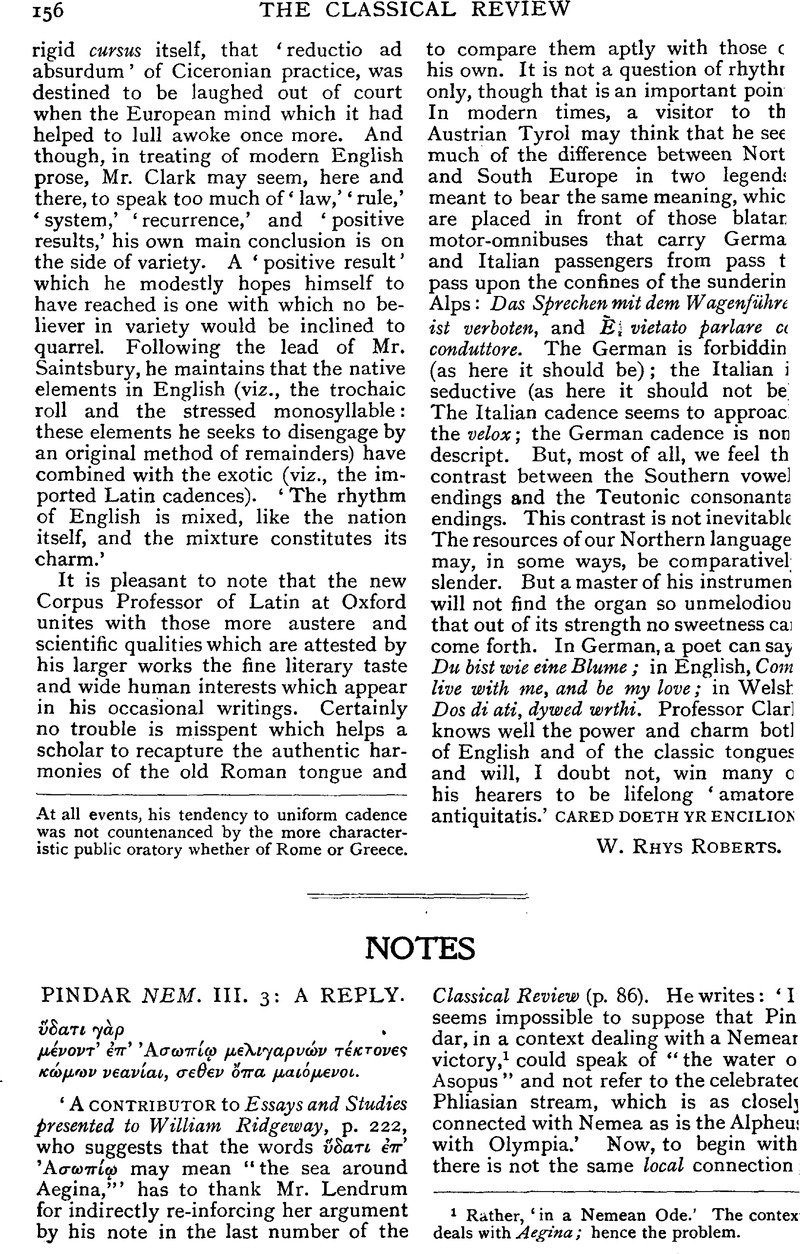No CrossRef data available.
Published online by Cambridge University Press: 27 October 2009

page 156 note 1 Rather, ‘in a Nemean Ode.’ The contex deals with Aegina; hence the problem.
page 157 note 1 E.g., Aristarchus. See my discussion of his explanation, loc. cit.
page 157 note 2 I have not space to discuss Mr. Lendrum's examples, but must demur to his translating Isthm. I. 4: ![]() : ‘may I escape the wrath of Delos, where I have drifted.’ He compares Pyth. IV. 43, ‘where the same words are used literally of the clod which … drifted to the shore of Thera:
: ‘may I escape the wrath of Delos, where I have drifted.’ He compares Pyth. IV. 43, ‘where the same words are used literally of the clod which … drifted to the shore of Thera: ![]() .’ There seems some confusion here. Medea has already said that the clod drifted—
.’ There seems some confusion here. Medea has already said that the clod drifted—![]() (1. 40); she now says that the ‘seed is strown’ on Thera, i.e. the clod has been cast ashore there.
(1. 40); she now says that the ‘seed is strown’ on Thera, i.e. the clod has been cast ashore there.
page 158 note 1 In this tablet, Audollent No. 270, the same in which φουρενς occurs, there is no other example of ω and none of η, the Latin long and short vowels alike being transcribed by ε and ο (με, αμορε, etc.).
page 158 note 2 ‘The Feast of Saturn’ in Collected Literary Essays. Cambridge University Press, 1913.